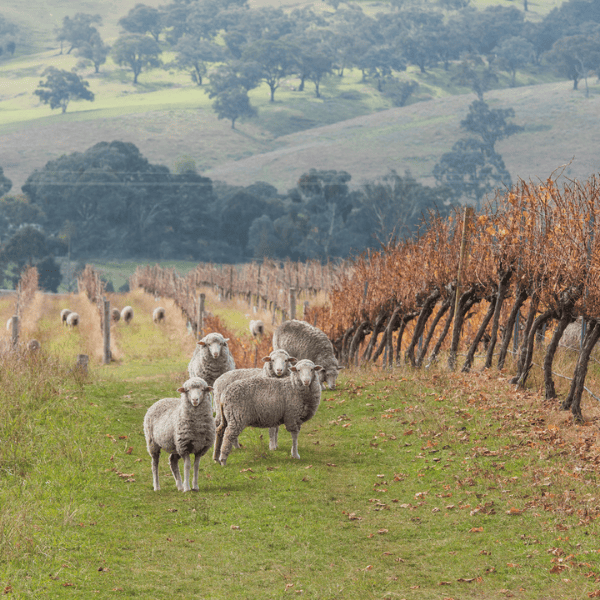
24 Jun Sustainability at Ross Hill Wines: From Vine to Bottle, a Commitment to the Future
Sustainability at Ross Hill Wines: From Vine to Bottle, a Commitment to the Future
At Ross Hill Wines, sustainability isn’t a trend. It’s a commitment we live by every day. As Australia’s first certified carbon neutral winery, we’ve proudly led the way since 2014 in reshaping how wine is grown, made, and shared.
Located in the cool-climate region of Orange, NSW, we believe that exceptional wine begins with respect for the land, the people who farm it, and the resources we share. From regenerative farming and renewable energy to lighter packaging and closed-loop waste systems, our goal is simple: make wine with care, and leave the smallest footprint possible.
Carbon Neutral Since 2014
We’ve been certified carbon neutral through Climate Active for over a decade. Every year, we track our emissions and actively reduce them across all areas of our business.
Our most recent reporting period saw a 15% drop in total emissions, and we nearly halved the emissions intensity of our wine production. These are measurable results driven by smart, practical changes that make a real difference.
In the Vineyard: Farming with the Future in Mind
Our vineyard practices focus on low-input, regenerative farming. We avoid pesticides, use natural fertilisers, and plant cover crops to improve soil health and reduce the need for irrigation.
Sheep graze through the vines after harvest, helping us cut tractor hours by 40% while naturally fertilising the soil. Skins and seeds from winemaking are composted and returned to the vineyard, enriching the land and keeping organic matter out of landfill.
Smarter Water and Waste Management
We’ve halved our water use thanks to rainwater harvesting and reduced irrigation. Inside the winery, we run a full recycling program for glass, cardboard, plastic, and organics.
For our direct-to-consumer orders and at the Cellar Door, we’ve eliminated the need for new case packaging. Every box we receive is reused for outbound orders, keeping unnecessary waste out of the system.
Powered by the Sun
We installed our first solar panels in 2013. Today, our 44kW solar array supplies a large portion of our winery’s energy needs. Combined with better insulation, LED lighting, and high-efficiency motors, we’ve cut our power bills from $40,000 to under $10,000 annually.
New additions like our tank cooling system and flotation pump have improved energy efficiency in winemaking, while maintaining the quality and consistency we’re known for.
Lighter Packaging for a Lighter Footprint
Packaging plays a big role in our environmental performance. That’s why around 60% of our bottles are now made from lightweight BVS glass, saving over 2.6 tonnes of glass each year and reducing freight emissions.
We’ve also updated our premium Pinnacle Series with labels made from paper containing 30% recycled content, supporting circular materials and adding another layer of sustainability to the bottle.
Smarter Logistics, Less Emissions
We’ve streamlined our freight and dispatch systems to reduce the number of trips and cut transport-related emissions by up to 10 tonnes of CO₂ each year. It’s another way we’re keeping our impact low while delivering wine across Australia.
Innovation with Purpose
At Ross Hill, innovation means improving how we work while caring for the environment. Insulating the winery and barrel rooms has helped us maintain stable temperatures without added cooling. Our new tank systems and smart refrigeration processes use less energy while supporting quality winemaking.
Each of these upgrades fits within our broader mission: to lead with purpose and produce wines that reflect the land they come from. Honest, expressive, and sustainable.
Come and See for Yourself
We welcome you to visit our Cellar Door in Orange and experience our sustainability journey first hand. Taste the wines, walk through the winery, and learn how we’re shaping a future where wine and the environment can thrive side by side.



Sorry, the comment form is closed at this time.